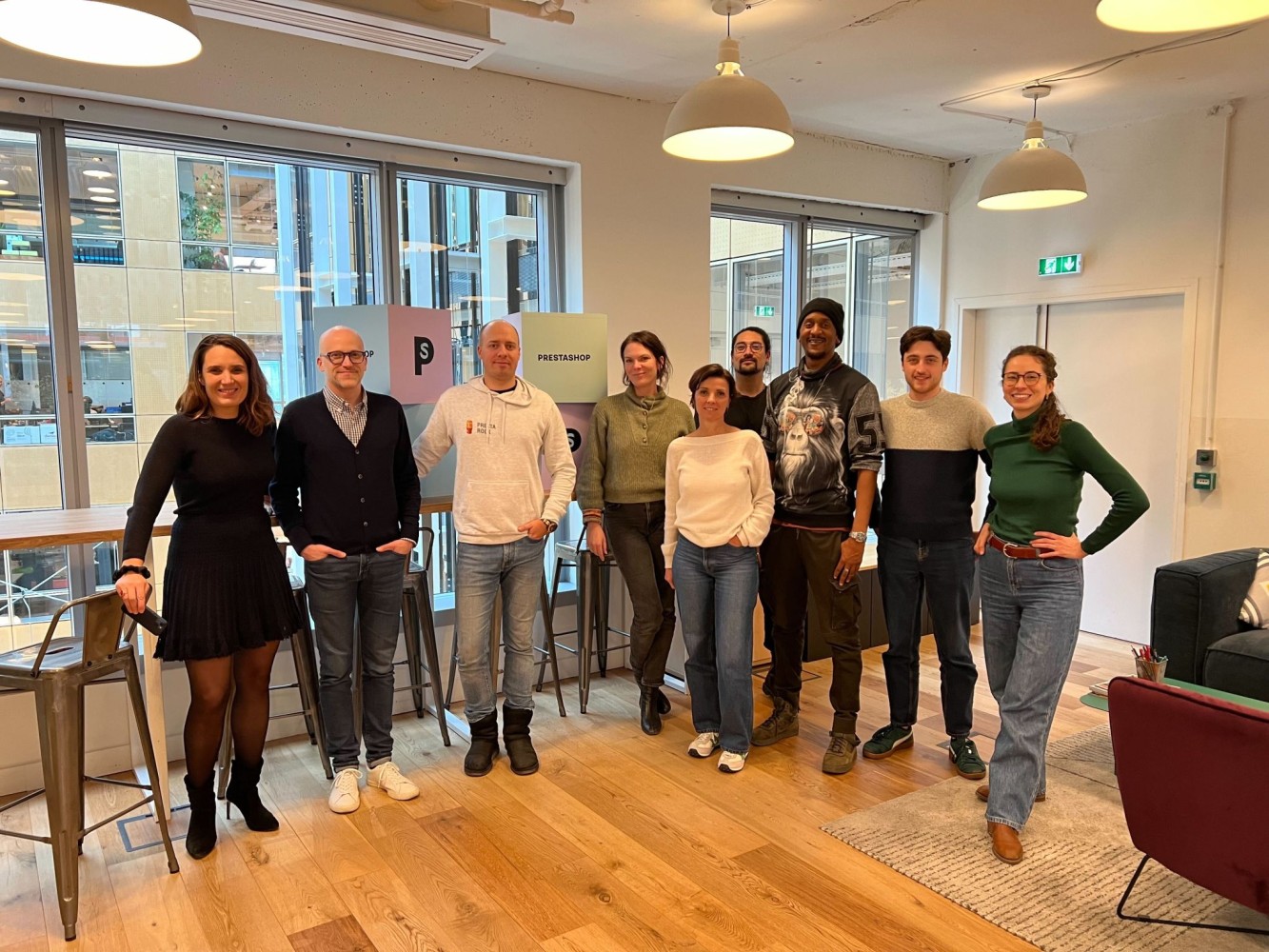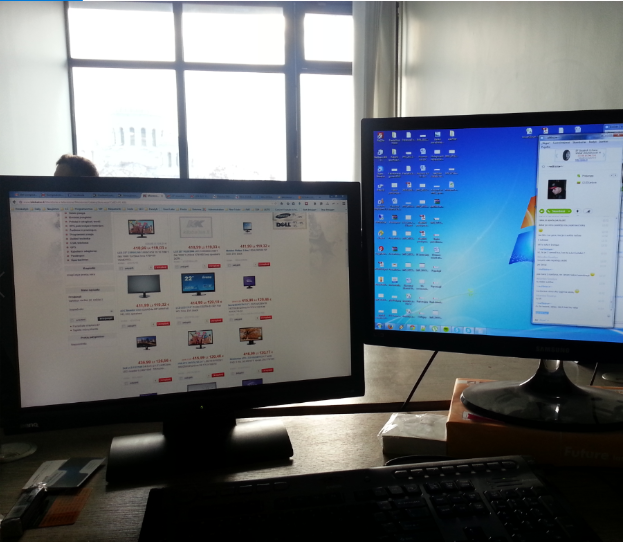
The Leap from Freelancer to CEO: The First Step to Becoming One
In the previous post, we stopped at my decision to finally establish a company. However, the decision itself and the process of making it were not so spontaneous. Back in the summer of 2014, feeling that the workload was more significant than usual, I already had two assistants who helped me with tasks. The cycle of history had turned, and I was no longer the student receiving small tasks to complete and program; instead, I was preparing, documenting, and assigning tasks to my colleagues via Skype.
During that summer, I observed that the workload, especially from Lithuanian clients, kept increasing. As a freelance specialist, I was working on increasingly more extensive and time-consuming projects, dealing with what could be considered the most prominent clients and companies in Lithuanian e-commerce.
A network of recommendations and acquaintances formed, where my completed work spoke for itself. The market lacked quality players capable of delivering solutions. A rather amusing moment is that, like back then, even now, we continue to take over projects from a specific competitor for development in the Lithuanian market. But more on that in future articles.
One thing I can take pride in is that one of the assistants who helped me with PrestaShop that summer is now the technical lead of what is our only competitor in Lithuania. It’s a story very similar to how my colleague Audrius L. accidentally introduced me to PrestaShop—I, in turn, introduced this colleague to the PrestaShop system, where he later found himself and his career—just in a different company.
The technological success of two companies in Lithuania began with those early steps in the summer of 2014. One was my own— PrestaRock‘s success—while the other was the accidental rise of a nearly bankrupt company producing tragically lousy code and software solutions so poor that even a fourth-year university student would have recognized their flaws. Their lucky break? They found a good technical person—who, in my view, essentially saved their entire company from technological collapse.
Even as I write this post and reflect, I don’t know whether founding the company was the best decision of my life—one that led both PrestaRock and me into a continuous cycle of transformation, growth, and the realization that everything up to now was a natural success. Or was it the worst decision? One that locked me, as a person, into a life of relentless work, deep introspection about myself, people, and business, and countless thoughts about whether all of this was even worth doing.
Whenever I attended business training sessions, I often heard the statistic that 90% of companies fail—if not within the first year, then within the first three. And even worse—many don’t survive their first decade. I also heard talk about how few business owners earn more than a talented, skilled specialist working in an international company. Meanwhile, my university peers still look at me skeptically, asking, “What are you trying to prove?”
Despite all that passion and the success I had enjoyed as a freelancer, I decided to take a risk. I bought out company shares from several individual shareholders, officially registered myself as the sole owner and CEO at the Registry Center, and began my journey as a business leader.
I remember the first time I moved my desk from home to the office on a dark, rainy October evening. The feeling was incredibly unsettling and filled with fear. As I carried my desk, I thought intensely—how will this all turn out? What if I fail? Where will I find clients? How will I manage the work? How will I pay salaries? I wondered how I would adapt to working in an office with unfamiliar people after being used to working from home in my underwear. Rent? I had never had to pay for office space before. Would I have enough money for everything? So many thoughts raced through my head. I won’t lie—my heart was trembling with anxiety and fear.

But the following day, I felt happy as I looked out the office window at one of Kaunas’ prominent landmarks. You see, the best work is only in the city center. And it felt so strange—new surroundings, new people, new colleagues sharing a tiny 20-square-meter office. It was me, my programming assistant, and two designers. Those first two weeks were probably the most productive of my life. I was in the office by 7 AM, walking down Kauko stairs to Gediminas Street near the now-famous café across from Kaunas University of Technology’s Management Faculty. I would climb to my fourth floor, turn on my monitor, and see Soboras Cathedral. I felt like I was living an absolute Silicon Valley startup dream—it seemed surreal. I was a CEO. Since I was sixteen, my childhood dream had come true, just without the Escalade.
As I write this post and prepare for future articles—especially after quickly realizing that being a great specialist does not make you a great leader (and the two have nothing in common)—I want to summarize a few things.
A perfect example of this is from this year when I attended the Sylius conference in Lyon, France. I decided to visit my beloved city of Paris. When I stepped off the train in central Paris, I decided to visit the PrestaShop office after ten years as a PrestaShop company. But then I told myself, “Why?” I didn’t want to disturb anyone’s day unnecessarily. I had already reached Notre Dame Cathedral when I suddenly stopped and realized—no, I can’t just let this moment pass. I don’t know when I’ll be in Paris again, and today is PrestaRock’s tenth anniversary. We are official PrestaShop partners; for ten years, we have been nearly the only PrestaShop partner in Lithuania, responsible for almost all of the country’s major e-commerce systems. And yet, I was too afraid to message my partners and ask if they had time for a quick coffee. Meanwhile, another company had turned such trivial marketing moves into a success story, presenting itself as the best. And me?

This illustrates a key point: if, after ten years, I still doubt my experience and abilities, then what happened when I was a student? When I was taking my first steps as a newly minted company leader who had accidentally grown out of being a specialist? It shows how much I lag in mindset, understanding, and thinking compared to my university classmates—some now run multimillion-dollar businesses in the U.S., produce reality TV shows in prime time, and appear in Lithuania’s Top 500 business magazine.
People say you should only compare yourself to your past self. I had already learned that lesson back then. And now, I compare myself only to my journey. But one trend stands out, which I want the reader—especially new managers or programmers—to hear. For example, when I “dared” to become a CEO in my fourth year of university, my classmates had already experienced their first business failure at sixteen or had been running companies since their final year of high school. An early start is essential. Don’t be discouraged if you’re not ahead yet; by making the right decisions, you will be eventually. And if you start early, you must work both hard and smart.
As I summarized in Nerius Jasinevičius’ podcast and my previous post, my company has become a space for personal growth, transformation, and incredible life experiences—a place where I could fully realize, discover, understand, and change myself. And I continue to change yearly and weekly with each of our team’s sprints. The journey has been truly challenging and fascinating, which is why I write these posts—so that perhaps a young, new CEO realizes they are not alone. And to show others that, by working consistently and systematically, you can achieve what you dream of. The key is never to give up. Everything can be learned, and while the most challenging thing is to change yourself, it is possible.
